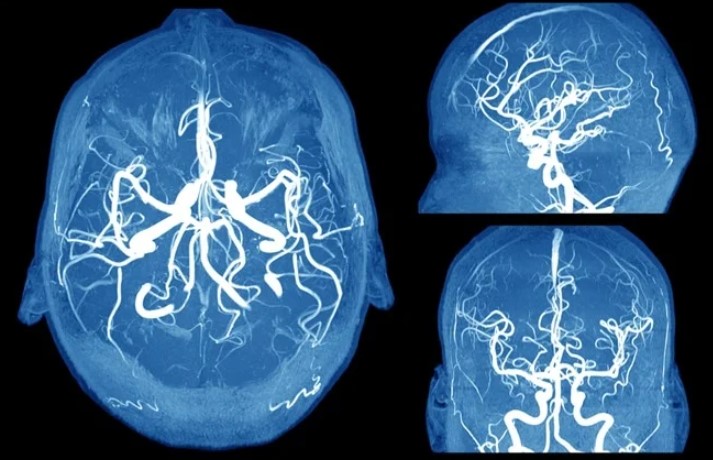8 Heart Healthy Lifestyle Tips Approved by Cardiologists

Living a heart healthy lifestyle is important—we know this. Still, in the United States, cardiovascular disease is the number one cause of death, which means heart disease prevention should be at the top of everyone’s priority list.
Fortunately, we learned a lot this year from cardiologists, heart health experts, new research, and the American Health Association (AHA) about what you can do to keep your ticker in tip-top shape.
Ahead, our top learnings this year, each of which can help decrease your risk of health disease and improve your overall well-being.
On days or weeks when you’re super busy (which, let’s be honest, is most of the time for many of us), it can be challenging to squeeze in a workout—never mind having the energy to do said workout. The good news is that, according to cardiologists, an easy, breezy, 15-minute walk around the block is enough to contribute to a healthy heart and body as a whole.
The morbidity (illness and disease) and mortality benefits of walking happen regardless of how fast your heart beats per minute while doing it. Of course, increasing your cardiovascular fitness and earning even more morbidity and mortality points requires increasing your heart rate and going longer distances.
Still, it sure is comforting to know that a 15-minute walk alone can positively impact your heart health.
When you do have the time and energy to exercise, there are three cardiologist-approved types of fitness that reap the most benefits for your ticker. They include aerobic activity such as swimming, spinning, and running, as well as flexibility (aka how much your muscles can stretch) and mobility (the ability for joints and muscles to reach their full ranges of motion) training.
Furthermore, strength training exercises are also great for heart health. In particular, cardiologists recommend incorporating these heart-healthy, strength-training exercises into your routine: squats, lunges, bench and shoulder presses, and planks.
By now you likely know that getting enough sleep each night is a significant contributor to overall health, but it’s also important for leading a heart healthy lifestyle in particular. Poor sleep can negatively impact cardiovascular health by interrupting your body’s natural recovery and recuperation, causing changes in your blood vessels, slowing down metabolism, and putting stress on your immune system. Even more of a reason to work on stepping up your sleep game in 2022.
Speaking of sleep, a new study published in the European Heart Journal suggests that when you fall asleep also matters. According to the study, the ideal, heart-friendly bedtime is sometime within the 10 o’clock hour at night. Researchers looked at over 10K subjects and found that those who fell asleep between 10 pm and 10:59 p.m. had the lowest incidences of cardiovascular disease.
Staying adequately hydrated is vital for, well, everything—breathing, moving, digesting, being alive. Still, chronic dehydration is common, and new research suggests there’s an association between hydration and heart failure.
While more research needs to be done to determine if dehydration is a direct cause of heart failure, this research suggests staying adequately hydrated may have preventative benefits.The National Academy of Sports Medicine (NASM) recommends men drink 128 oz. of water daily and women consume 96 oz.—the Centers for Disease Control (CDC) doesn’t offer guidance on daily water intake.
While one’s entire diet contributes to overall heart health, protein, in particular, plays a big role. The most heart-healthy proteins include those derived from plant (think beans, lentils, chickpeas, and tofu), according to the AHA and cardiologist Alejandro Junger MD, founder and medical director of the Clean Program and bestselling author of Clean ($10). They also happen to be the protein sources of choice in the Blue Zones, five regions around the world where people regularly live to be at least 100 years old in good health. Furthermore, recent research shows that eating a plant-based dinner significantly lowered the risk of heart disease, compared to eating a dinner full of refined carbs and meat.
Additionally, nuts are also great for heart health thanks to antioxidants which help blood flow. And, wild fish is a great source of omega-3 and omega-6 fatty acids, which are linked to decreasing the risk of heart disease.
This year, the AHA released a formal statement covering the 10 key dietary features that promote heart health. On it, it listed liquid, non-tropical plant oils, such as those derived from olives or sunflowers, as the most heart-healthy ones to cook with. Lisa Moskovitz, RD, CDN, CEO of NY Nutrition Group and author of The Core 3 Healthy Eating Plan, previously told Well+Good that this is due to tropical oils like coconut or palm oil having higher amounts of saturated fats, which can increase LDL cholesterol and risk of stroke or heart disease.
While you’re traveling, you’re almost guaranteed to spend long periods sedentary. What’s more, traveling can take a serious toll on your body. Tamanna Singh, MD, a doctor of clinical cardiology and cardiovascular medicine at the Cleveland Clinic, previously told Well+Good that air travel can lead to fatigue, stomach discomfort, and dehydration due to the fluctuations in oxygen levels, air pressure, and temperature.
With that in mind, fueling your body correctly while traveling is super important. Cardiologist-approved travel snacks include water and electrolytes, coconut water, fresh fruit, and high-protein whole foods such as yogurt, hard-boiled eggs, or peanut butter.
Oh hi! You look like someone who loves free workouts, discounts for cutting-edge wellness brands, and exclusive Well+Good content. Sign up for Well+, our online community of wellness insiders, and unlock your rewards instantly.
Our editors independently select these products. Making a purchase through our links may earn Well+Good a commission.







